|
Oh no, this isn't going to get political is it? Oh come on, look who you're asking. If you're just here for the films then hop forward four paragraphs, but be aware that the social griping isn't going to end there.
2013 was not exactly my favourite year. As public services continue to get a financial caning from a government on a twisted ideological purge, good and talented people I have worked with for years have been made redundant, while those who remain have seen their workloads skyrocket and their wages frozen for the fourth year in a row. We've watched gas and electricity prices spiral out of control while the energy companies make obscenely large profits, and the bedroom tax forced families out of their homes, plunged thousands into debt and prompted 53-year-old grandmother Stephanie Botrill to tragically take her own life, while the managing directors of tax-dodging corporations have seen their wages soar and look set to be given yet another gift from the public purse when the government cut the top rate of tax again. Increasingly I'm reminded of Monty Python's lupin-stealing highwayman Dennis Moore and his Robin Hood inspired song, specifically the verse in which the bemused bandit gets his priorities reversed:
He steals from the poor
and gives to the rich.
Stupid bitch.
It was a year when beards, wearing your baseball hat on backwards and substituting the word 'sick' for 'brilliant' came back into fashion, and the Oxford English Dictionary frazzled all sensible brains by announcing that their word of the year was 'selfie", a narcissistic pastime that involves taking pictures of your own stupid face. It's an activity I neither partake in nor see the appeal of. Mind you, I've never understood why people on holiday ask strangers to take pictures of them standing in front of famous buildings or spectacular views. I mean, why would you want to ruin a perfectly good picture of the glorious beauty of the Golden Temple in Kyoto by plonking your unattractive self right in front of it? I'll bet their holiday albums are a real delight: 'Here's a picture of me. And here's another picture of me. And another. And here I am somewhere else. And oh look, who's in this picture? Why it's me, of course."

It was also a year when a bold young man named Edward Snowden became the conscience of the security services by revealing the appalling extent of the NSA's surveillance of just about everyone who has access to a computer or smartphone (my girlfriend has no interest in ever owning either and is looking pretty smart now). Yet perhaps the most alarming aspect of the whole affair is the lack of angry protest from the very age group that once upon a time would have taken to the streets. Perhaps this is endemic of an age when a sizeable portion of the British public seems to swallow any crap thrown at it by people in power and their obedient and deceitful lapdogs in the tabloid press. It's a time when exploitation of the poor and weak is encouraged and rewarded, when dismay about the stealth attacks on the NHS and the scurrilous decision to flog a postal service that's been in public hands since its inception way back in 1516 (and that even the dead demoness Thatcher refused to squander) is largely confined to the comments section on The Guardian website.
This seemingly passive response to the Snowden revelations has also been put down in some quarters to a generation for whom the very concept of privacy is almost alien. Today's teenagers, after all, are growing up in an age in which they and almost everyone they know is broadcasting their views and their personal information to the rest of the world through a bewildering variety of social media, the potentially negative effects of which some will experience without ever realising. Allow me to explain. One of my jobs this year was to photograph a seminar run by one of the world's most successful tech companies – you'd all know the name if I told you and there's a good chance you're actually using at least one of their products, but some discretion is required here. The seminar was designed to encourage college students to work in teams and develop initiatives that this company might consider taking on board. It was a well-run affair whose lead presenter struck a near-perfect balance between showmanship and bullshit-free motivational thinking. The day was a success, but our cheery presenter chose to round it off with a small warning to all of the students in attendance. Having delivered the above message about the increasingly alien nature of privacy, he revealed that when anyone applies for a job at this internationally successful company, the first thing they do is scour social media sites for any information they can find on the candidate. And if they come across just one photo of them making a drunken fool of themselves on Facebook or making unpleasantly defamatory comments on Twitter, then the applicant in question will never make it to the interview stage either then or in the future. It's a practice, he assured us, that is increasingly common among the sort of large international firms for which these students are looking to work in the future.
But as ever, I digress. I'm here to talk about my choice of audio-visual delights from the past twelve months and as ever there were plenty of titles to keep me entertained and intermittently busy during that period. I'd have to say that 2013 was the year that Blu-ray almost completely eclipsed DVD as my delivery format of choice – I may have received a number of DVDs for review, but the vast majority of the films that I bought this year were on Blu-ray. I did buy a few DVD box sets of American TV series – a decision driven by a combination of price, availability and the fact that these discs upscale so well on my system – and once again DVD titles released by UK indie distributor Second Run always look so damned good that I'm never left pining for a Blu-ray upgrade. Yet having fully embraced 2K, it's worth noting that almost all of the current talk in the professional arena is around 4K production and delivery. Get ready...
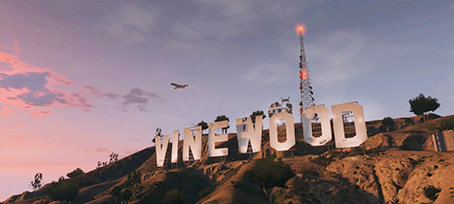
As ever I've found precious little to tickle my interest in the American mainstream. My on-going antipathy was neatly encapsulated later in the year not by a sharply scripted indie film or an incisive article in the movie press, but by the open world video game Grand Theft Auto 5, where you'll find the current state of Hollywood (renamed Vinewood in the game) dismissively satirised on the Classic Vinewood in-game web site:
Sequels, remakes, romantic comedy sequels, superheroes, CGI nonsense and one-dimensional androgynous vampires. That's the Vinewood business model these days.
Low-risk, high-concept blockbusters supported by massive merchandising and completely stripped of all nuance and subtext so that Eastern Europeans and Asians don't get confused. Unable to tell a succinct story in 90 minutes, directors make 3 hour films that drag on like someone shot the editor. The world has gone digital, which means no more tough decisions about brevity. The film industry is dead and to add insult to injury, we have to watch as gutless studio execs strip the last pieces of meat from its decaying corpse.
A little extreme, but delivered from the heart. And for the record they also have a go at phones, games and social media as well.
As usual I've had trouble whittling down the list of audio-visual pleasures from close to a hundred to a more manageable but still somewhat bloated figure that allows me a little breadth and variety. And this is very much a personal list, twenty-five titles (and they're not all films or discs) that made a difficult year so much more interesting and enjoyable. Several have already been acclaimed on this site and a few have been praised widely enough elsewhere not to really need an extra shout from me, but they're getting it anyway. Others are here simply because there was something about them that just clicked for me and I couldn't care less if others didn't like them. It's my bloody list and I'll put what I want on it.
For a change I've chosen to list them in the manner of annual awards, and in the spirit of busting my own critical ego, when I use the word 'best' I actually mean 'favourite' – it's the one I enjoyed the most, not a claim of quality that all should bow down to. Of course it has been suggested by those who know me well that the categories have been selected – or perhaps that should be invented – solely to highlight the titles I wanted to include. Why, the very idea...
I'll also be throwing in a number of other titles as I go that almost made the list but had to be squeezed off to keep the numbers manageable, and a few more at the end that are worthy of your consideration.
And so, in no logical order...
Best Opening Sequence to a Documentary: Beware of Mr. Baker
There have, as ever, been some fine and worthy feature documentaries released this year, several of which have found themselves on the Oscar shortlist. We were less enthusiastic than most others about Joshua Oppenheimer's The Act of Killing (click on the title to read Jerry Whyte's detailed analysis), and engaging and informative though it definitely was, there is a sense that Mike Lerner and Maxim Pozdorovkin's Pussy Riot: A Punk Prayer has been shortlisted more for its subject matter than it's storytelling qualities. If the decision pisses off those responsible for jailing the band then I'm fine with that. I'll give a supportive shout for Zachary Heinzerling's Cutie and the Boxer, a fascinating portrait of octogenarian Japanese ex-pat action painter Ushio Shinohara and his long-suffering wife Noriko, and for Gabriela Cowperthwaite's disquieting Blackfish, which persuasively explores the damaging consequences of keeping killer whales in captivity and training them to jump through hoops for the cooing public.
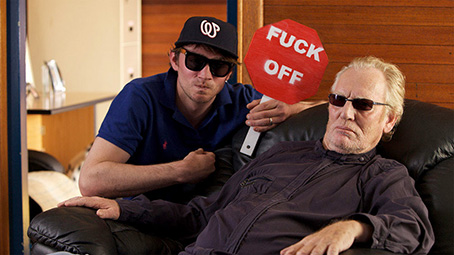
But the documentary that I enjoyed the most in 2013 was Jay Bulger's portrait of Ginger Baker, the ferociously talented but highly volatile drummer who famously made his name with Cream and Blind Faith. Although it structurally follows a traditional biopic path by blending interviews with archive footage, photos and animated inserts, the cantankerous Baker still makes this a uniquely entertaining experience, scathingly mocking Bulger's questions and, in what has to be the most memorable opening scene of the year, losing his rag at him and almost breaking his nose by whacking him in the face with his walking stick.
Best Finale: Breaking Bad
I was lucky enough to be introduced to Breaking Bad early on in the first series by a friend who keeps a watchful eye on what is happening in American cable drama (thanks Bill!) and have been hooked ever since, but held off watching series 5 until all of the episodes had been broadcast in order to view them in one big fat satisfying chunk. Breaking Bad is one of those bold, impeccably crafted and beautifully cast and performed examples of why American television drama is leaving its big screen equivalent at the starting gate. With season 5 the makers (under the guidance of creator Vince Gilligan, who also wrote and directed the final episode) decided it was time to bring the series as a whole to an end, allowing them to wrap up all the remaining subplots and bring the main narrative arc to a final conclusion. And boy did it deliver. This was damned dark TV from its earliest days (you're not going to make a drama about a chemist dying of cancer who decides to cook the world's best crystal meth to provide money to support his family after his death without dancing with the Devil), but season 5 took us to places that few if any current Hollywood feature films would dare. Key characters were killed or cruelly betrayed, and allegiances were tested with such frequency and extremity that I became increasingly uncertain who I was meant to root for. We had a splendid new bad guy in the shape of young Todd, whose young Matt Damon looks (I'm sure actor Jesse Plemons is heartily sick to death of hearing that), unflappable demeanour and unwavering politeness made his emotion-free willingness to do whatever he believed the job required seem all the more disturbing. It all built to a genuinely superb final four episodes (at the time of writing, episode 14 has been rated by over 43,000 users on IMDb and scores a perfect 10) and a final sequence whose emotional impact was not lessened in any way by its inevitability. Genuinely superb television.
Scariest Monster in the Making: Simon in Simon Killer
Antonio Campos's skin-crawlingly disturbing tale of a troubled young American in Paris, where he is shaped by circumstance and his own inability to emotionally connect with others into a potential monster, was one of the year's most troubling but darkly compelling films. I'll freely admit that after a single viewing I would not have put this film on this list, but the bloody thing stayed with me and on the second viewing it really did click. A rare new film inclusion in the Masters of Cinema series, their Blu-ray was superb, boasting a strong transfer, great sound and some excellent extras, including a completely unexpected but hugely entertaining conversation with the director Campos and lead actor Brady Corbet in the company of their delightfully tolerant and encouraging mothers. Check out our film review and Blu-ray review.

Best Belgian Crime Drama: Bullhead [Rundskop]
OK, sure, there weren't too many candidates for this particular category, but how often is it you get to see a downbeat Belgian film about a muscle-bound farmer who supplements his income by illegally trading animal steroids and hormones and is haunted by a dark secret from his childhood? What unfolds is a gripping study of loneliness, isolation and fractured masculinity, built around a quietly superb central performance from a beefed-up Matthias Schoenaerts as the young and tormented farmer, a ball of pent-up and potentially explosive rage whose criminal ambitions bring him face-to-face with his troubled and potentially destructive past.
Best Film Response to Government Policy: The Spirit of '45
I sometimes worry for this country's cinematic future. It's not that we're no longer producing filmmakers of talent, but where are the directors with the wit and social conscience of the great Ken Loach? Recalling Lindsay Anderson's dictum that it is the duty of the artist to bite the hands that feeds it, where are the angry political films in this age of ideological austerity? It was left to the now 77-year-old Loach to provide the required response with a stirring history and celebration of the positive impact of the post-WW2 welfare measures introduced by the then newly elected Labour government, one that also charts more recent attempts to tear them apart. There's no question that this is a partisan film, but given the sustained, manipulative and frankly deceptive attacks on our welfare system by politicians, tabloid newspapers and other sundry rubbish, Loach's heartfelt slice of cinematic balance deserves to be as widely seen as possible. Dogwoof's brilliant DVD package includes over 7 hours of often excellent extra features, including a wealth of further interview material and Loach's fine 1985 documentary on the miners' strike, Which Side Are You On?.
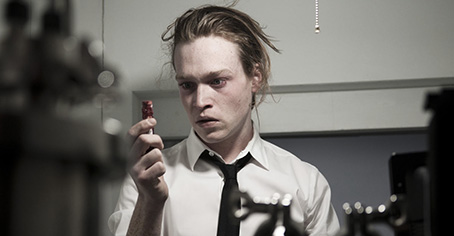
Best Body Horror film: Antiviral
Like father, like son? It certainly looks that way. The directorial debut of Brandon Cronenberg, son of David, is a splendidly creepy and icily filmed portrait of a future in which the cult of celebrity has grown to such a degree that the famous are even able to sell their diseases to obsessive fans. Focus of the story is Syd March (a superbly unsettling turn from an emaciated-looking Caleb Landry Jones), a salesman and technician for certified infectors The Lucas Clinic who is smuggling the diseases past the clinic's tight security by carrying them in his bloodstream. Boasting more back-of-the head follow shots than I've seen in a film in years, Antiviral is one hell of a first feature and a striking looking one – a shame then that it was only released it on DVD in the UK, though it does have a commentary track by Cronenberg and director of photography Karim Hussain. Oh wait, so does the region A American Blu-ray. You can read our review of Momentum's UK DVD here.
Best Event Film: A Field in England
A confession: I wasn't a big fan of Ben Wheatley's acclaimed debut Down Terrace. I'm not going to get into the details of why here, but I really responded to his follow-up Kill List and the jet-black comedy of Sightseers. Unlike some others, I also really liked his brief but neatly handled contribution of The ABC's of Death. And Wheatley is also a really interesting raconteur and a solid ambassador for British independent and genre cinema. In July he chose to simultaneously premiere his brain-frying period film A Field in England on DVD, Blu-ray, VOD download, in cinemas and as a break-free Film4 television broadcast. It was a ballsy move that really paid off by building anticipation to the point where the lead-up to the screening was the subject of excited Twitter debate and countdowns. And, dammit, the bugger was worth the wait, a challenging but mesmerising work that was quite unlike any other film I saw last year. And if you caught it on Film4 and liked it then I'd definitely recommend the Blu-ray release for the extra features and the phenomenal DTS-HD sound mix.
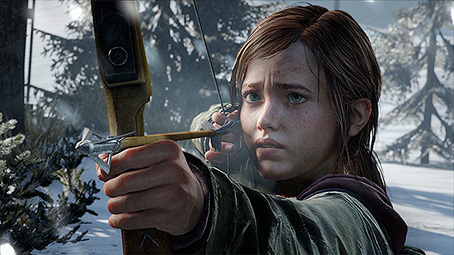
Most Convincing Journey From Childhood to Adulthood: Ellie in The Last of Us
Coming of age stories have been the stuff of cinema since it's early days and over the years have shaped themselves into an instantly recognisable formula, one that usually involves a sexual awakening and/or a traumatic event that jump-starts the move from the innocence of childhood into premature maturity. As a genre, horror has the potential to both accelerate and intensify the process and drastically change its nature, and in that respect the otherwise excellent The Walking Dead really could be making more of the violent jump to adulthood undertaken by the children of the survivors. Showing with aplomb just how it should be done was The Last of Us, a widely and justifiably praised PS3 game from consistently excellent programmers Naughty Dog. A gripping storyline, immersive graphics, unsettling sound design, varied gameplay and solid voice acting create an experience that is involving, scary and disarmingly emotional – in Charlie Brooker's TV documentary How Videogames Changed the World, Father Ted and I.T. Crowd writer Graham Linehan confessed to having been so affected by the game that at one point it actually reduced him to tears. A survival horror story set ten years after a lethal pandemic has almost wiped out humankind and created lethal reanimated creatures from their damaged remains, you play toughened survivor Joel, a man whose young daughter was one of the first victims of the crisis. In an echo of Alfonso Cuarón's Children of Men, he is charged with the task of transporting Ellie – an infection-resistant child who may be mankind's only hope for a cure – through territory overrun by the living dead. It's nail-bitingly tense in the way only the best survival horror games can be, but one of its principal strengths is the journey to forced adulthood undertaken by Ellie (convincingly voiced by actress Ashley Johnson), something really brought home when you unexpectedly take control of her character after Joel is seriously injured, by when she has already matured beyond her physical years. To top it all, the game had a bolder and more morally challenging ending than I encountered in any genre film I saw all year.
Best Recreation of a Real-Life Political Fuck-Up: Rebellion
We've been waiting some time for actor Mathieu Kassovitz to make good on his astonishing directorial debut La Haine, and while Rebellion (a somewhat unimaginative English language retitling from the original L'ordre et la morale) may not reach the dizzying heights of that opening fusillade, it was still widely celebrated as a welcome return to form. Kassovitz himself plays top police hostage negotiator Philippe Legorjus, who is whipped off to New Caledonia where a group of indigenous Kanak tribesmen are holding twenty police officers captive. That it's all set to end badly is announced at the start (and given that it's based on a factual incident, this would likely be known to anyone who knows their modern French history) and Kassovitz the director chooses to view events from a very specific viewpoint, but he still fashions the story into a consistently gripping and tightly developed drama. The climactic assault on the hostage location is superbly handled – its breathless combination of newsreel camerawork and terrifying surround design had me physically ducking and crouching in my seat.
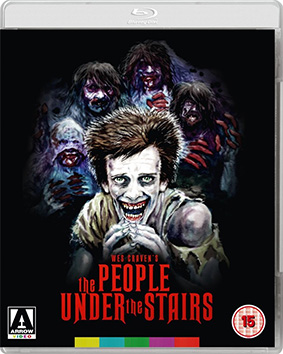
Best Socio-Political Horror Film Revival: The People Under the Stairs
Over the past couple of years, Arrow Films have become the go-to company when it comes to doing right by exploitation and genre favourites from the past 40 years. This year they have delivered some fabulous revivals, almost always with sparkling transfers and a barrel of lovingly produced extras, often the work of horror and exploitation evangelist Callum Waddell, to whom we all owe a sizeable debt of gratitude. But there's more. They also have their prestige Arrow Academy label, the cult movie DVD label Arrowdrome, and the self-explanatory Nordic Noir collection. Titles given the luxury makeover on Blu-ray in 2013 include Tenebrae, The Beyond, Black Sabbath, The Fury, Invasion of the Body Snatchers, Lifeforce, Squirm, Dressed to Kill, The Night of the Hunter, The Long Goodbye and a spanking new restoration of Time Bandits. Newer films released on Blu-ray by Arrow have included The Hunt (highly recommended), I Wish (ditto) and Crawl (also a goodie). We weren't quite as enthusiastic about The Texas Chainsaw Massacre 2 as some horror fans, but Arrow's dual format release was absolutely marvellous and one of the best featured home video releases of the year. So why, when faced with all of those wonderful titles, have I singled out Wes Craven's 1991 The People Under the Stairs? It's a personal thing, of course, but it's largely because despite being one of the smartest and most entertaining socio-political horror films of its day (oh where are such films now?) and boasting a pair of gloriously barnstorming performances from the Twin Peaks (Twin Peaks) couple of Wendy Robie and Everett McGill, it remains one of Craven's most infrequently championed films. Arrow's Blu-ray does it proud, boasting a crisp HD transfer and a solid set of extras, including a mots most enjoyable commentary track by the film's then young star Brandon Quintin Adams, moderated, of course, by Callum Waddell.
Most Welcome HD Re-Master: Tokyo Fist / Bullet Ballet
OK, let's keep this simple. As far as I'm concerned, maverick Japanese director Tsukamoto Shinya is the epitome of a truly great outsider filmmaker, and Tokyo Fist and Bullet Ballet are two of my favourite Tsukamoto films. Both have been re-mastered by the director himself from the original negatives and released on UK Blu-ray by Third Window Films. So delighted was I by their arrival that despite having the review discs, I bought the retail versions anyway. I could go on but will end up just repeating what I've already written in the reviews themselves, which are here: Tokyo Fist Blu-ray review / Bullet Ballet Blu-ray review.
Best Science Fiction Rediscovery: Ikarie XB 1
We've really let UK independent distributor Second Run down this year. Of their many excellent releases, we've only found time to cover a paltry three of them, but all were worthy of inclusion on this list for differing reasons. There was Štefan Uher's strikingly made and richly layered Czech New Wave drama The Sun in a Net [Slnko v sieti] and Chinese director Mao Mao's stylistically challenging but strangely hypnotic Here, Then [Ci Chu Yu Bi Chu]. But the Second Run rediscovery that delighted me the most was Jindřich Polák's 1963 Ikarie XB1, a fascinating and forward-looking Czech science fiction drama whose influence on later works ranges from Star Trek to 2001: A Space Odyssey. You'll find more detail in my original review here.
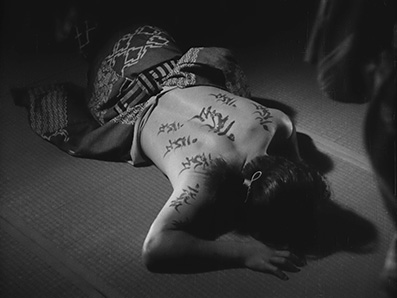
Best Multi-Film Box Set: The Complete (Existing) Films of Yamanaka Sadao / Late Mizoguchi – 8 Films, 1951-1956 / World Cinema Foundation Volume One
Every year I get the feeling that I could fill up this list just with titles from Eureka's Masters of Cinema series, so consistently excellent are the quality of the films, the transfers and the accompanying extra features (the booklets alone should be considered collector's items). And there have been so many terrific MoC titles to choose from this year. A number were Blu-ray upgrades from previous DVD releases, including Shindo Kaneto's Onibaba, Kuroneko and The Naked Island, F.W. Murnau's Tabu: A Story of the South Seas, Douglas Sirk's A Time to Love and a Time to Die, Michelangelo Antonioni's La Notte, and Fritz Lang's Dr. Mabuse der Spieler. New to the series were Kawashima Yûzô's superb Bakumatsu taiyô-den, Sacha Guitry's La Poison, Stanley Kubrick's Fear and Desire, D.W. Griffith's The Birth of a Nation, Howards Hawks' Red River, Douglas Sirk's fabulous Tarnished Angels, Jacques Rivette's Le Pont du Nord, Maurice Pialat's Van Gogh, Antonio Campos's Simon Killer (see above), Henri-Georges Clouzot's The Murderer Lives at Number 21, and La città delle donne and Il Bidone from Federico Fellini. Seriously, if this had been all I had to watch in the past twelve months, I'd still have considered it a pretty good year. But there's more. Eureka also released what for my money were the three most essential multi-film box sets of 2013, and after days of ponderous deliberation spent trying to select a favourite I gave up and declared it a tie. All three are must-haves for different reasons: The Complete (Existing) Films of Yamanaka Sadao for bringing together all the surviving film work of a talented filmmaker, most of whose substantial filmography has been lost to history; Late Mizoguchi – 8 Films, 1951-1956 set for presenting eight films by one of the true masters of world cinema in high definition in a single set, complete with all of the extras from their earlier double-bill DVD releases and a mother of a booklet; World Cinema Foundation Volume One for bringing carefully restored prints of three very different but equally remarkable works of world cinema to a viewing public who had probably never even heard of these films before, let alone seen them. Personally I can't wait to see what they release in 2014.
Hang on a minute, did I miss one out? Ah, that's because...
Best Restoration of a Silent Classic: Nosferatu
OK, yes, there is still visible damage (and it's actually more visible in HD) and some mild brightness flickering, but this is still a mother of a restoration that sticks two fingers up to the efforts of fate to banish this godfather of vampire films to cinematic purgatory. The achievement of those responsible for the restoration is heightened by the journey this film has taken during the ninety-one years since it was first released (if you don't know the details, check out our review of the earlier Eureka and BFI DVD releases), and until we get hit with a 4K version some time in the distant future, this new Blu-ray edition from a fabulous Friedrich-Wilhelm-Murnau-Stiftung restoration will do just fine. The transfer brings out previously unimaginable level of detail and is backed up by some really first-rate extras, including another excellent commentary by film historian David Kalat.
Best Vampire Movie: Midnight Son
As if to respond to that heartfelt accusation above about one-dimensional vampires, ex-ILM effects man Scott Leberecht's low budget debut feature was a timely reminder of the endearing qualities of this particular sub-genre and one of the smartest vampire movies to come out of America since Abel Ferrara's 1995 The Addiction. I'm keeping this short because I covered all this in my DVD review, which you can read here.
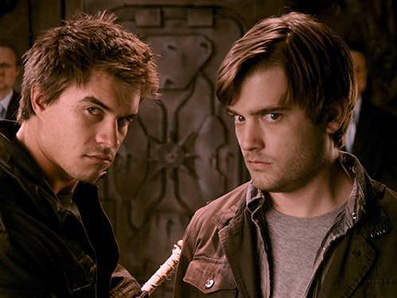
Best Mindfuck Movie: John Dies at the End
A surprisingly and rather thrilling faithful adaptation of David Wong's cult novel, pared of its fat and compressed into a brain-twisting 99 minutes by Phantasm and Bubba Ho-Tep director Don Coscarelli. The adventures of two slacker youngsters who stumble across a drug that super-heightens your perception and opens up gateways to alternate realities, the film is made all the more challenging by Coscarelli's decision to also strip out the explanations and leave it to us to decipher what is actually going on. While this tended to annoy those who like their narratives linear and their story details clear, the rest of us had a ball. I'll expand on this when I review Eureka's upcoming Blu-ray next month.
Best Mindfuck Revival: Possession
UK distributor Second Sight did a spanking job last year, delivering HD revivals of favourites from the 1970s and 80s with spruced-up (though admittedly not always perfect) transfers and some worthwhile extras. Just look at this line-up, all released on Blu-ray by the company in 2013: Betty Blue, The Brood, Scanners, Creepshow, Heaven's Gate, Piranha, Quest for Fire, The Long Riders, Southern Comfort and Streets of Fire. Wow. But my absolute favourite was their Blu-ray revival of Andrzej Zulawski's extraordinary melding of relationship drama, horror, politics and encroaching madness, all propelled forward by Zulawski's bold direction, Bruno Nuytten's eye-popping cinematography and two brilliant performances from Isabel Adjani and Sam Neill. A solid HD transfer was backed up by a cornucopia of quality extras and the package has the feel of a real labour of love on the part of those who put it together. More power to them. You can read our Blu-ray review here.
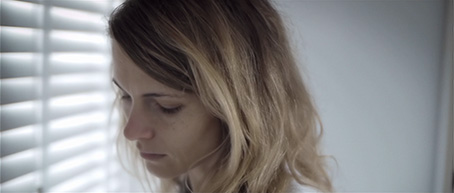
Best Example of Non-Dialogue Storytelling: the first half-hour of Upstream Colour
Shane Carruth's long-awaited second feature is every bit as bold and intellectually challenging as his auspicious low-budget science fiction debut feature Primer and even more technically accomplished. This is particularly evident in the gorgeously handled first half-hour, which tells a complex story in almost purely audio-visual terms, employing dialogue only as background detail. And if you're looking for a near literal definition of a film auteur then Carruth is it, having written, directed, produced, photographed, co-edited and scored the film, and he even plays one of the leading roles. I could go on but I've been writing this piece on and off for two weeks now and need to get it finished, and I hope to be reviewing the film's recent UK Blu-ray release soon.
Best Political Comedy: The News Quiz
At a time when we should be showered with angry cinematic and televisual responses to ideologically driven austerity measures other governmental bullcrap, filmmakers have been largely silent and the once politically active stand-up comedy community are too busy doing adds ads or hosting audience-friendly TV quiz or chat shows. Thank fuck then for Radio 4's long-running The News Quiz, which is still as funny, as barbed and as sharply critical of all manner of political idiocy as it ever was, particularly when delivered by the hilariously and inspiringly cynical Jeremy Hardy. Of course it's a sign of the times that the series has sent satanic hacks at The Daily Mail into a mouth-foaming frenzy and had the humourless right holding it up as proof that the BBC is under communist control.
Most Misleading Film Poster: Easy Money
Like many, I'm sure, I was misled by the UK poster for Daniél Espinosa's Swedish crime drama Easy Money (which is frankly nowhere near as neat as the original Swedish title Snabba Cash) into believing that it was something it was not. As someone who claims not to be influenced by advertising, this puts me in the rather awkward position of admitting that I was suckered in by the promotional material. For those who not seen the film, take a look below see what you think.
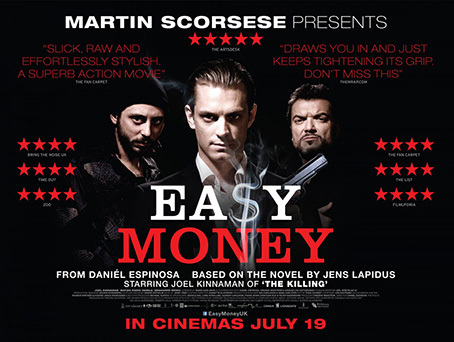
To me that familiar triangular arrangement of characters, coupled with the press quotes (which you can't read on the image at this size – click on the poster to see the original), the Scorsese endorsement, the brandished handgun and the self-confident expression and stance of the young man at front suggests a snappily paced, action-orientated caper thriller. What you actually get is a gripping but downbeat slice of Nordic Noir, one comprised of three separate stories that begin to overlap when a young business student agrees to do a job for a local hood and soon finds himself seriously out of his depth. Given the current popularity of this uniquely Scandinavian sub-genre, I couldn't help thinking that the film could and possibly should have been sold on these very credentials. The fact that it's already been snapped up for an American remake doesn't really help make my case.
Wittiest Black Comedy: Seven Psychopaths
Martin McDonagh's second feature ably demonstrated that the lovely In Bruges was no one-off. In what in some ways plays like McDonagh's blackly comic take on Charlie Kaufman's script for Adaptation, Colin Farrell plays McDonagh's alter ego, a writer who is struggling to make any progress on the screenplay for a film titled – yes, you've guessed it – 'Seven Psychopaths' and ends up meeting and being traumatised by a string of variously unhinged nutters. A top-flight cast that includes Sam Rockwell, Christopher Walken, Woody Harrelson, Harry Dean Stanton and the too often under-appreciated Željko Ivanek really sink their teeth into a delicious script and the results are a darkly tinged delight. There are a whole string of memorable and quotable dialogue moments, a fan favourite being Walken's hilarious refusal to raise his hands at gunpoint (which you can see here), but every time I watch the film I snigger at the exchange between Farrell and Walken that takes place in the desert after the latter has had a vision of his murdered wife:
'You've just seen Myra on a chair with a bullet through her head."
'In a grey place."
'England?"
'It seemed a lot worse than that."
'Wow."
It also felt as satisfyingly 'complete' as any film I saw in 2013, and McDonough's canny ear for emotive pop tunes is up there with early Wes Anderson. 'You and I... travel to the beat of a different drum..."
And finally...
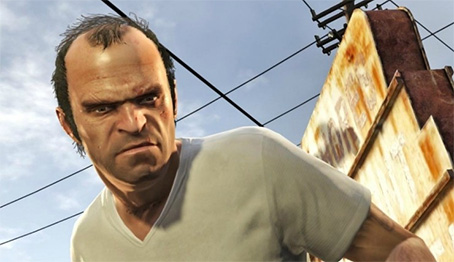
Most Entertaining Reprobate: Trevor Phillips in Grand Theft Auto 5
We all, I would hope, like our leading characters to be morally ambivalent and even to have a dark side. It's partly this that has made Breaking Bad's Walter White – a man who cooks up the world's purest crystal meth, lies to even his closest friends and family and kills for sometimes selfish reasons – one of the most compelling screen characters in recent years. Yep, as far as I'm concerned, clean-cut heroes can take a running jump. It's likely a mark of how strongly cinema has influenced game development that one of the year's most memorable characters in any medium was found not in a film or a cable TV series but a big budget multi-platform video game. The GTA games have always had engaging central characters, but GTA5 brilliantly upped the ante by giving us three very different and distinctive leads to play and allowing us to switch between them as they come into the story. The masterstroke was saving the best for last, though in many ways Trevor Phillips is a walking representation of everything the conservative right think is morally wrong with games like Grand Theft Auto, a semi-psychotic ball of explosive rage gloriously voiced by actor Steven Ogg. Had the game revolved solely around him it just wouldn't have worked, as it's his interaction with others and his habit of switching moods in a heartbeat that makes him such a riot, as his gruff comical amiability giving way to whispered threat and screaming anger with an unpredictability that is as hilarious as it is convincingly dangerous. It thus probably doesn't help that friends have assured me that Trevor is the game character that I most resemble. Read into that what you will.
Fuck me, this has gone on a bit, hasn't it. It's certainly been dominating my spare time for a while, holding up reviews and getting in the way of that mismatched duet of exercise and serious drinking, and I'm still convinced that I've forgotten a few. To round things off I'll give a brief mention to a sprinkling of other films and discs that I enjoyed last year that easily could have also made it onto the list as well but didn't get mentioned in the picks above:
-
Tough Korean high school animated drama King of Pigs [Dwae-ji-ui wang]
-
Francois Ozon's excellent In the House [Dans la maison]
-
Third Window's most welcome double bill rarely seen Kurosawa Kiyoshi films The Serpent's Path [Hebi no michi] and The Eyes of a Spider [Kumo no hitomi]
-
Paul Thomas Anderson's typically engrossing The Master
-
Emad Burnat and Guy Davidi's personal political documentary 5 Broken Cameras
-
Pablo Larraín's seductive Chilean political drama No
-
Sergei Loznitsa's poignant war drama In the Fog [V tumane]
-
David Gelb's mouth-watering portrait of 85-year-old sushi master Jiro Ono, Jiro Dreams of Sushi
-
Paolo and Vittorio Taviani's documentary drama Caesar Must Die [Cesare deve morire], in which prisoners at a high security prison in Rome prepare for a public performance of Shakespeare's Julius Caesar
-
A lovely performance by Frank Langella in Jake Schreier's funny and touching Robot & Frank
-
Julian Pölsler's hypnotic adaptation of Marlen Haushofer's cult 60s novel The Wall [Die Wand]
-
Sono Shion's deeply moving Fukushima-inspired drama Land of Hope [Kibō no Kuni]
Every one of which come highly recommended. Have a good new year all! |